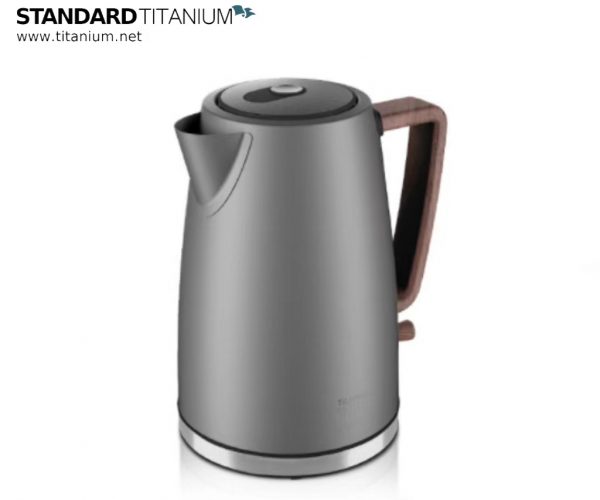In 1795, Austrian scientist M.A. Klaproth discovered a new element while studying Rutile, which was named the Greek mythological figure Titans. It is the source of the name “titanium”. In 1910, American chemist M.A.Hunter reduced titanium tetrachloride with sodium to obtain relatively pure titanium. In 1932, Luxembourg scientist W.J.Kroll obtained titanium by reducing titanium tetrachloride with tungsten. In 1940, Kroll reduced titanium tetrachloride with magnesium under the protection of argon to produce titanium, which laid the foundation for industrial titanium production since the 1970s.

Titanium is easily chemically reacted with oxygen at high temperatures, such as Nitrogen, Hydrogen, water vapor, Helium, Carbon Monoxide, Carbon Dioxide, and other chemicals. So titanium can be utilized as an effective getter. The surface of titanium can form a dense oxide film, which has a protective effect. Therefore, titanium has strong corrosion resistance in seawater, alkaline solution, nitric acid, and aqueous chlorine. In dilute hydrochloric acid and dilute sulfuric acid, which has a concentration of less than 5%, it also has some corrosion resistance. Titanium hydride is extremely fragile and easily powdered. Titanium absorbs hydrogen in a certain temperature range and releases it when the temperature rises, which can store hydrogen.
Physical properties of titanium are highly connected to its impurity content and type. Impurities such as oxygen, nitrogen, and carbon improve its hardness, whereas iron decreases the corrosion resistance. Therefore, the impurity content of industrial titanium is very strict.
Because titanium is a type of biophilic metal, it is an excellent material for our daily necessities. Although silver may also be used for daily necessities, the price of silver is higher than titanium, and its combination property is far worse. Titanium has many advantages in the manufacture of civilian life products:
Biophile. Titanium is biocompatible with human tissues, is not harmful, and it is in close proximity to human bones. The global market for surgical implants made of titanium alloy is now expanding at a pace of roughly 15% annually.
No heavy metal pollution. Industrial pure titanium with titanium content more than 99%, has only minute levels of Fe and C, and is free of dangerous heavy metals like As Hg, Cr, AS, and Cd. Some heavy metal concentrations are as low as 1/3 or even 1/10 of the national standard. Therefore, titanium is now a fantastic material for making POTS, water heaters, POTS, cups, and other household goods, as well as an excellent material for making children’s daily essentials.
Antibacterial function is obvious. The oxide film on the titanium surface can inhibit bacterial reproduction, and harmful bacteria can hardly survive in titanium container. Some titanium companies in China and Japan have developed titanium chopsticks, water cups, sports POTS, tea cups, wine glasses and other household products, which are very popular among consumers.
Lightweight and easy to carry. Stainless steel has a density of 7.8g/cm3, whereas titanium is just 4.51g/cm3. Therefore, titanium is much lighter than stainless steel in the same volume. Titanium kettles and other titanium household products are favored by outdoor enthusiasts.
Not easily deformed. The melting point of titanium is about 1667℃, and it can be used at high temperature of 600℃ for a long time without deformation, fatigue damage and oxidation shedding.
Outstanding corrosion resistance and comprehensive properties. Titanium has good corrosion resistance, mechanical properties and technological properties. As a corrosion-resistant material, titanium will replace stainless steel, nickel alloy and other rare metals in chemical, pharmaceutical and alkali production. It is very importance to employ titanium industrial equipment to boost output, improve product quality, prolong equipment life, reduce production costs, prevent pollution, protect the environment, enhance working conditions, and increase productivity.
Situated at the centre of titanium production in China, Standard Titanium Co. brings the lowest pricing and highest engineering standards for metals to the market. Confident that we cannot be beaten on prices and quality we have introduced our price promise guarantee. Customers worldwide choose Standard Titanium as their trusted and reliable supplier of titanium and CuNi mill and finished products.